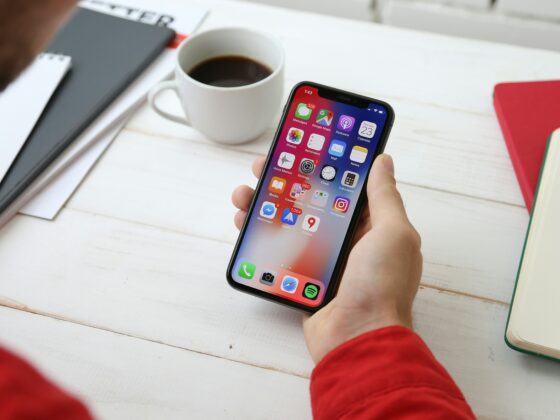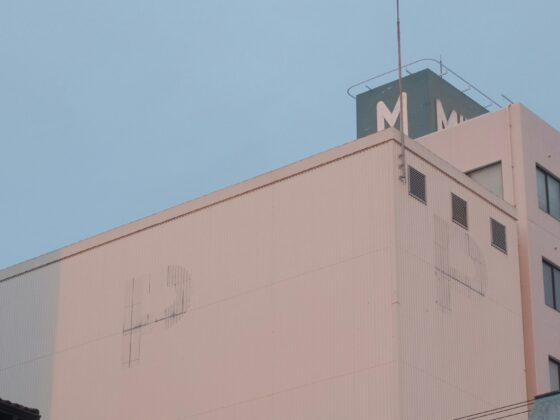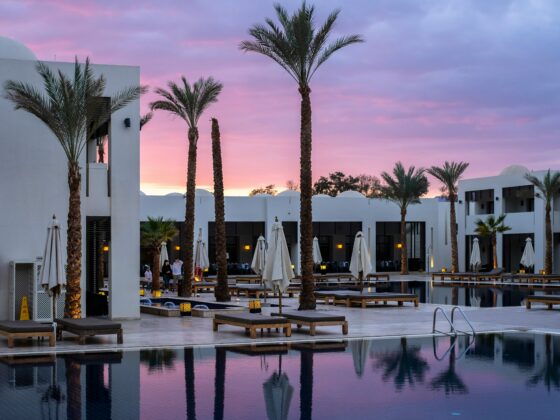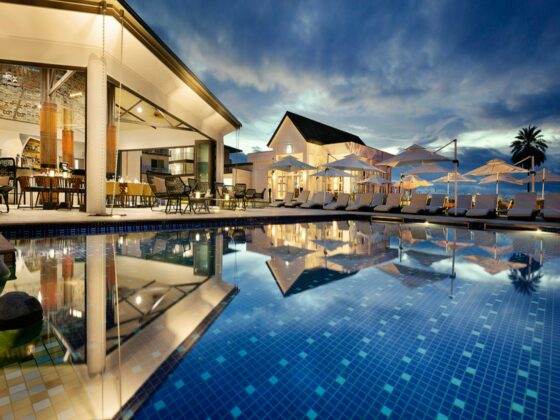In the latest episode of the Shiji Insights podcast, host Florencia Cueto sat down with Guillermo González, Chief Partnerships and Business Development Officer at Hotelverse. Their discussion looked into the evolution of guest choice within hotels, moving far beyond traditional room categories. The conversation explored how empowering guests with precise room selection, a concept inspired by other travel sectors, is not just a futuristic idea but a present-day reality. This shift towards “attribute-based selling” with hotel room selection technology and hyper-personalization significantly impacts how hotels operate, engage guests, and unlock new revenue streams.
Takeaways
Embrace Granularity: The shift to attribute-based room selection is here. Guests now expect this specific level of choice.
Digital Twins Enhance Pre-Arrival: 3D models let guests explore and choose rooms. Their positive experience starts before check-in.
Choice Drives Revenue & Satisfaction: Guests may pay more for their exact room. This boosts satisfaction and hotel ADR.
Integration is Non-Negotiable: Seamless data flow connects key hotel systems. This ensures operational efficiency. It creates a smooth guest journey.
Technology Empowers, Not Replaces: Innovative tools free staff from manual tasks. Staff can then focus on guest interactions. They can also pursue upsell opportunities.
True personalization in hospitality
The discussion opened by covering the context of Hotelverse’s emergence in 2022, a company born in the post-pandemic era. This timing is significant, as guest expectations for tailored experiences have intensified. For years, “attribute-based selling” was a popular buzzword, an ideal where guests could pick specific room features beyond just “king bed or sea view.” The core mission, as explained, is to make this a tangible reality.
The traditional hotel booking process often involves a degree of guesswork regarding guest preferences. Attribute-based selling, however, inverts this model. Instead of hoteliers predicting what a guest might desire, the power is placed directly in the guest’s hands. They are presented with a spectrum of detailed options, allowing them to construct a stay meticulously tailored to their individual needs. This level of granular choice defines hyper-personalization.
Selling experiences, not just beds
A crucial point raised was the fundamental shift in what hotels offer. While historically focused on selling beds, the modern hotel sells experiences. The unique nature of hospitality, where guests reside on-premise for extended periods, presents an unparalleled opportunity to deliver richer, more customized stays.
This is where the concept of a “digital twin”, a hyper-realistic, interactive 3D model of the hotel, comes into play. This technology allows prospective guests to virtually tour rooms, explore views, and understand the hotel’s layout before they even book, let alone arrive. The guest experience, therefore, begins much earlier, right from their initial interaction with the hotel’s direct booking channel. This virtual exploration is not just a novelty; it’s about optimizing the user journey, providing clarity, and setting accurate expectations. By allowing guests to make informed choices, similar to selecting an airline seat, hotels can significantly enhance pre-arrival engagement and satisfaction.


Boosting satisfaction and unlocking revenue
When guests can select rooms based on highly specific preferences, such as proximity to an elevator, distance from noise-prone areas, specific views, floor level, or even morning sunlight exposure, their satisfaction levels demonstrably increase. This ability to choose caters directly to individual desires, leading to a more positive perception of their stay.
Beyond guest satisfaction, this level of choice introduces a tangible new revenue stream. The conversation highlighted findings that guests are often willing to pay a premium for the ability to secure their preferred room. This premium can range significantly, typically cited as between 1.5% to 15% of the Average Daily Rate (ADR). This willingness to pay for specificity allows hotels to monetize previously undervalued aspects of their inventory, effectively capturing untapped value. It transforms room selection from a passive assignment process into an active, revenue-generating opportunity.
“We’ve found that guests are willing to pay a premium, typically between 1.5% to 15% of the ADR, for the ability to select their exact room.” Guillermo Gonzalez
The unseen engine of seamless experiences
The importance of technology integration was a recurring theme. Implementing precise room selection touches multiple operational verticals within a hotel, including sales, reservations, front office, and even housekeeping. A smooth, interconnected technology stack is paramount for the successful execution of such a system.
Close collaboration with Property Management System (PMS) and booking engine providers is essential to ensure efficient automation and data flow. When these systems communicate seamlessly, the information regarding a guest’s specific room choice can be accurately reflected across all touchpoints. Integration is not just about operational efficiency for staff; it’s fundamental to the guest experience. Guests should not perceive the seams between different vendor systems. Instead, they should experience a cohesive journey where their preferences are consistently recognized and delivered.
Introducing innovative technology invariably presents challenges, with the primary hurdle often being a change in mindset.
A data-driven approach is often most effective. For instance, showcasing high success rates in fulfilling room selection requests (e.g., 95%) can alleviate operational concerns. Furthermore, introducing a “request-based” model can ease the transition. In this model, guests can request a specific room, and the hotel retains the operational flexibility to confirm or offer alternatives. This maintains hotel control while still providing enhanced value to the guest. The ultimate aim is to evolve towards fully automated room assignment within the PMS, which some technologically advanced properties are already embracing. This automation frees up front desk staff from manual allocation tasks.
Empowering staff and amplifying upsell opportunities
A significant benefit of advanced room selection technology is its ability to support and empower hotel staff, rather than replace them. By automating routine tasks like room assignment, front desk agents can dedicate more time to meaningful guest interactions, service recovery, and enhancing the overall guest experience.
Moreover, this technology can be a potent tool for upselling. The digital twin and detailed room attributes visually showcase the unique benefits of different rooms. Often, the most visually appealing rooms, those with superior views, more space, or unique features, are in higher categories. This gives front desk agents a compelling, visual way to offer upgrades. When guests can see the tangible benefits of an upgraded room, they are more likely to accept the offer. Some systems even incorporate gamification, rewarding agents for successful upselling and request fulfillment, creating a win-win scenario.
“Attribute-based selling flips that idea on its head: we give the guest a range of options and let them choose what suits them best. This is what we call hyper-personalization—empowering every individual to build a stay tailored to their own needs.” Guillermo Gonzalez
Guillermo included an anecdote about a hotel partner initially skeptical of this new approach. An operations manager was particularly resistant. However, after an on-site visit, observation of their processes, and a clear explanation of the tool’s functionality, the manager transformed from a skeptic into a strong advocate. This illustrates how patience, clear communication, and demonstrating tangible benefits can overcome resistance and foster champions of innovation.
Closing
The conversation underscored a pivotal transformation in the hotel industry. Moving beyond standardized offerings to embrace hyper-personalization through precise room selection is no longer a far-off concept but a strategic imperative. Hotels that adopt such technologies are not just meeting evolving guest expectations; they are unlocking new revenue potential, enhancing guest satisfaction, and empowering their staff. The ability for a guest to meticulously craft their stay, down to the specific room, fundamentally changes the value proposition. As this technology matures and integration deepens, the future points towards a hospitality landscape where every guest feels their individual preferences are not just acknowledged, but proactively catered to.
Watch the full podcast here – in Spanish.
[embedded content]







